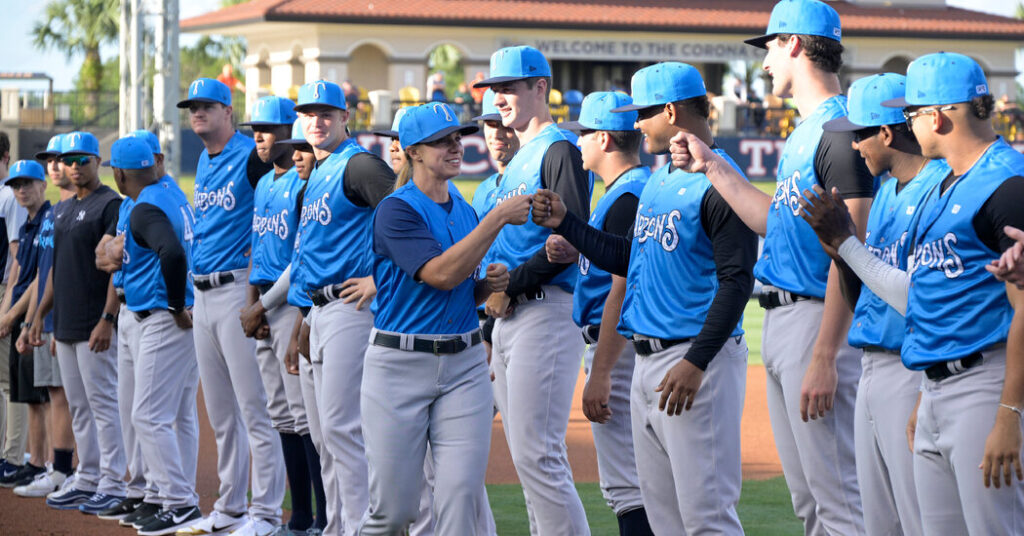Major League Baseball and the players’ union have finalized the first collective bargaining agreement for minor league players, which was ratified by over 99 percent of the minor league membership, according to the union.
The five-year deal still requires the ratification of the 30 major league owners, but it was negotiated by the commissioner’s office on their behalf.
“The agreement represents a giant step forward in treating minor league players as the elite professional athletes that they are,” Tony Clark, the executive director of the union, said in a statement released Friday. “It’s a historic day for these players, their families and the entire player fraternity.”
Under the terms of the deal, player salaries will more than double at all levels of the minors and players will be paid for training in the off-season. Players will also get upgrades in housing, transportation and meals, with a committee created to oversee food quality. Players who sign for the first time at 19 can become free agents after six years.
The deal also includes a guarantee that M.L.B. will not contract the minor league system during the course of the agreement, as it did when it cut 40 teams after the 2019 season.
What to Know About M.L.B.’s New Rules
Minimum salaries will increase from $4,800 to $19,800 for rookie ball; $11,000 to $27,300 at High Class A; $13,800 to $27,300 at Class AA; and $17,500 to $45,800 at Class AAA, according to The Associated Press. Players often receive initial signing bonuses to supplement their income. Last year, most new players signed out of the draft had bonuses of around $20,000, and the elite prospects got bonuses as high as $7 million.
M.L.B. issued a statement about the ratification and said the agreement builds off previous improvements made to the system in recent years.
“When minor league players formally declared their intention to unionize last September, M.L.B. opted to immediately and voluntarily recognize the players’ rights to unionize and began negotiations on a first collective bargaining agreement,” the statement said. “Meeting throughout the off-season, we made tremendous progress over a short period of time and are pleased to have reached a five-year agreement with the players, subject to ratification by the owners.”
While the agreement — and the prior incorporation of minor league players into the Major League Baseball Players Association — is a victory for the union, M.L.B. also benefits from the new deal as some of the core elements are expected to further the clubs’ investment in the players, especially with improved nutrition and travel.
Previously, minor league players were not unionized, and M.L.B. justified their pay structure by comparing their work to a seasonal apprenticeship, and to musicians and actors striving to make it to the top of their field. The argument was the players should be exempt from the Fair Labor Standards Act, like people in those other situations.
M.L.B. argued that the vast majority of minor league players had little hope of making the big leagues, and their choice to play baseball was a temporary one before they switched to a different career. But outside pressure, including from Congress, helped lead to a change.
Over time, the league came to terms with the need to double the pay structure and improve conditions. Some clubs were more willing to do so than others. Additionally, since the players were not unionized, M.L.B. did not have a single unit with which to bargain, until now, which helped facilitate the new standards throughout the minor league system.


